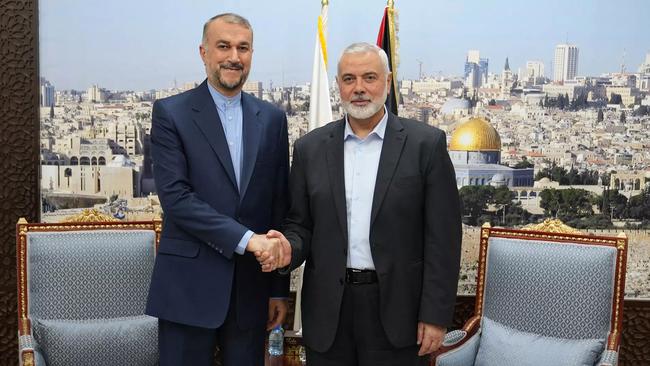Qatar’s role more than just a middleman

Doha, the capital, has been home to the political office of Hamas since it abandoned Damascus over the Assad regime’s repression of its opposition in the Syrian war.
That has been to the benefit of both the US and Israel, as it means they have a pro-Western interlocutor when needed. Neither will deal with Hamas directly, nor it with them.
Qatar has also become the main financier outside the UN for the provision of aid and services in Gaza, with Israel allowing the cash to be transferred through its territory – but that has allowed Hamas to gain legitimacy as a ruling authority in Gaza, and Israel to think it had pacified the territory.
There was a startling reminder for Qatar of what its mediator role meant when Ismail Haniyeh, the Hamas leader, was filmed warmly meeting the foreign minister of Iran, the group’s main international sponsor, after the October 7 attacks.
Critics say Qatar’s role is not just as a middleman. It has supported causes linked to the Muslim Brotherhood, while the Qatari television station Al Jazeera’s coverage of Middle East conflicts, wildly popular in Arab countries, is seen by others as inflammatory and often anti-Semitic. That said, Israel has not closed down the channel’s operations in the country, and its diplomats say privately that they regard Qatar as “friendly”.
One thing that is never challenged either at home or abroad is its hosting of the greatest single enemy of the most violent Islamist movements there is: US Central Command, and its Al Udeid air base.
Qatar became better known in the past year for soccer.
Now that the World Cup is a distant memory, it will be this uncomfortable proximity of Islamism and F-35s on which the television cameras will again focus.
The Times



The hostage release deal is being put down to talks mediated by Qatar, and is another achievement that highlights the ambiguous role the country plays in the Middle East. Few places are as admired and distrusted in equal measure as this Gulf monarchy.